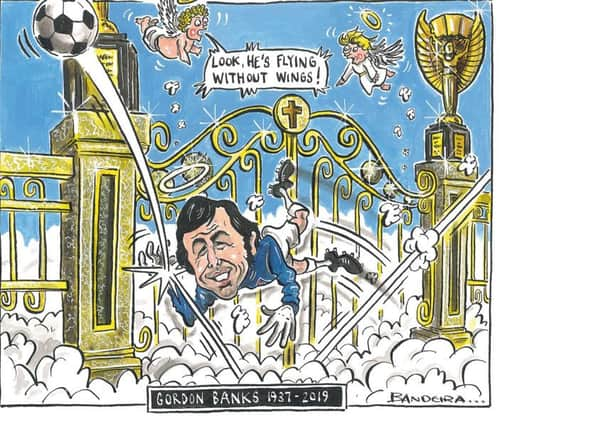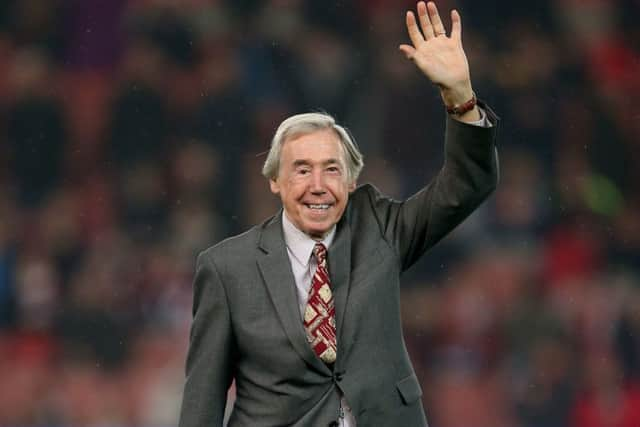The Yorkshire Post says: Gordon Banks, a national icon and ultimate role model


Yet it is this ethos which defined the spirit of England’s 1966 heroes – a band of brothers proud of their working class origins who took on, and beat, the world under Sir Alf Ramsey’s steady tutelage – as the country pays homage to the side’s gifted goalkeeper who has died at the age of 81.
A gentle giant born and brought up in Sheffield, his early appearances in goal were inauspicious to say the least. But, like others in the post-war period, he persevered – even working as a hod carrier and carrying coal to build up his strength – before training as an apprentice bricklayer.
Advertisement
Hide AdAdvertisement
Hide AdYet fate intervened when he went to watch his local side Millspaugh play and their goalkeeper did not turn up. Banks, in his working trousers, was summoned onto the pitch where his cat-like agility between the sticks led to an unexpected contract with Chesterfield – and then a distinguished career at football’s highest level.


However, while he had the safest pair of hands of all when England won the World Cup on home soil, he will always be remembered for that gravity-defying save against Brazil in 1970 when his outstretched right hand denied the peerless Pele a certain goal and Bobby Moore teased: “You’re getting old, Banksy, you used to hold on to them.”
Today a goalkeeper like Gordon Banks would be priceless – and would command financial riches to match their fame. Yet these were different times. There was not even an instant knighthood – just a modest OBE to recognise his prowess. And after a car accident brought his career to a premature end when he lost his sight in one eye, he still had to work for a living and his dealings in business not always successful.
But he never lost his humility. And even when kidney cancer returned, eventually proving one match too many, he remained the ultimate role model thanks to a quiet dignity that could be traced back to a humbling childhood in industrial Sheffield during and after the Second World War when winning wasn’t everything.
A great player, he will be remembered as an even greater person.